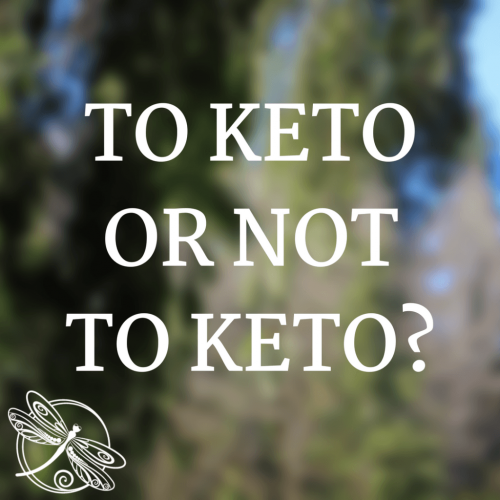To Keto or Not to Keto: That Is The Question
Diabetic Keto-Acidosis (DKA) can be the precursor to death for people that suffer from diabetes. When diabetes is left untreated, it is DKA that causes shock, multi-system failure, and eventual death. Even with the risks of DKA, some people with diabetes have adopted a Ketogenic diet to achieve weight loss, reduce inflammatory responses, and improved digestion. Due to the benefits realized by some and the potential risks of complications for others, there are very strong feelings for and against a ketogenic diet.
The body’s primary fuel source is glucose, but during times of starvation, glucose levels will drop. When diabetes is not treated or is undertreated, there is an overabundance of glucose in the blood, yet without insulin to transfer the glucose, starvation occurs inside the cell. When the body is in starvation mode, the liver breaks down fats into ketones as backup sources of energy. As fats are broken down, acids are produced as a byproduct which can upset the delicate pH balance in the blood for some people. If the body can’t correct the pH balance on its own, the blood becomes too acidic which starts the process of shock.
The primary symptoms of early DKA are:
(Diabetic Ketoacidosis Symptoms)
- thirst
- frequent urination
- severe fatigue
- nausea and vomiting
- fruity breath odor
- trouble breathing
- difficulty concentrating
- flushed skin
- abdominal pain
People who adopt a ketogenic diet severely reduce or eliminate the intake of carbohydrates to exhaust stored glucose, and force the body into fat burning mode – imitating a starvation scenario. Reducing the amount of sugars and carbs the body must process can be helpful in managing diabetes. Many people on keto diets have reported improved wellness, mood and energy and a feeling like the diet “reset” their system. The average US diet contains much more sugar than the diets of previous generations; getting back to cleaner eating has great benefits as does reducing excess body fat.
Do you Keto?
If you are living with diabetes, the choice to “go keto” must be made with the full understanding of the implications. For T1D’s, reduction in carbohydrate intake will require changing insulin dosage or perhaps your insulin to carb ratios. For T2D’s, lowering carbohydrate intake may allow you to reduce dependence on oral hypoglycemics or supplemental insulin as well as assist in weight loss. All persons with diabetes should monitor blood sugar levels closely and test for ketones in your urine. A “keto” diet becomes risky when blood glucose levels are not well managed, and the healthy break down of fats leads excess acids in the blood. Therefore, a ketogenic diet should only be done with your provider’s supervision.
Whether to keto or not to keto depends upon your willingness to monitor your blood sugar and urinary ketones on a frequent basis. Be aware of the signs and symptoms of DKA. Whatever your current feelings are about the benefits or detriments of a ketogenic diet, remember that everyone is on their own journey and find success and failures in different ways. The important thing is to monitor yourself closely, and work with your health team to optimize your physical state and wellness.
Be well,


0 Comments